“No offense adults…you are not a kid today. You don’t understand what we are going through, what we want and what it is like to be a kid in school today!”
Robert, #USQ19 Featured Learner
This was a powerful statement from Robert, a middle school student, who spoke with his sister Rosann last week at #USQ19. Watching the room, it appeared as though his brutal honesty may have offended some adults at first. However, it prompted the question: “If this is true, now what?”
The tagline of The USQ Experience is “Students and teachers as design partners in teaching, learning and leading.” What does that really mean?
The word partnership has a number of synonyms; relationship, connection fellowship, collaboration, etc. It is about coming together to pool skills and resources, and sharing the risks and rewards associated with our partnered efforts.
From Robert’s statement and the raw yet hugely important message he and Rosann shared, it appears that “relationships” between students and educators need some work. How do we engage as a community of learners and in ways that make all members feel valued and appreciated? This work is not easy, as we all recognized during the discussion that followed Robert & Rosann’s story. Yet, the room was alive with conversation and buzzing with strategies meant to establish and grow these relationships, to not only ensure all members of a learning community have a voice, but feel valued and appreciated throughout the learning process. What made this discussion so powerful were the voices of students and educators coming together around this need! Some ideas that were generated by the multi-generational group during that discussion:
- Learn Out Loud:
- Incorporate time each week for kids to teach others something
- It is imperative for educators to model their own learning for others, including students.
- Together teachers, students and administrators have the ability to move mountains, just say “yes” to the opportunities!
- Ask students about their “obsessions”
- Ask educators about their “obsessions”
- Be real. Be transparent. It’s the only way to build trust.
- Include students on all committees and empower them to share and act on their ideas
- Truly listen to students with a growth mindset. As another one of our USQ story tellers shared, “Don’t make the mistake of thinking kids are only capable of doing kid things.” – Jack McConnell
- Be ready for kids to be completely honest, it might shock you at first
- Morning meetings are a great way to start nurturing relationships, preK-12.
What can be added to this list? We’d love to hear ideas or strategies you’ve learned, are using or have used in the past. WE are the community that will Unhinge the Status Quo!
…
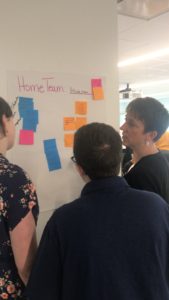
Reflecting on next-step ideas for growing stronger student-educator relationships
Joy Kirr is a fierce advocate for student voice in learning and proudly worked with her niece and nephew to share their learning stories with us at #USQ19!
Joy is a teacher and author of Shift This! Follow Joy on Twitter (@joykirr) and be sure to catch her new book, #WordShift scheduled to be released this summer!

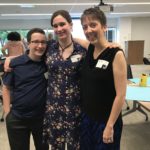
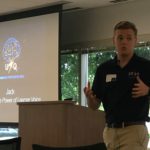
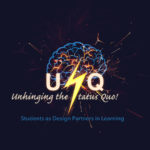
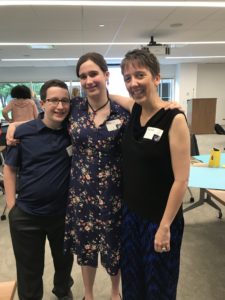





4 Comments
Eric Johnson
(June 27, 2019 - 7:09 pm)Teachers and students are a symbiotic relationship. Students need to lead up the chain of command to communicate to teachers what they need and how to overcome the material in order to ensure understanding. Vice versa the teachers need to ensure the students are engaged and working with the material being taught so that true learning is on the frontlines. The 21st century is about overcoming complex realities versus the old school of “Do what the teacher says.”
Dale
(June 28, 2019 - 8:36 am)I agree with your statement. I wonder… how does a teacher/school create “safe spaces” for kids to communicate their thoughts? Who models for teachers how to ask questions that allow kids to ask their clarifying questions, wondering questions, etc. The 21st century is complex, building relationships should be the most meaningful, stable, powerful, trusting, grounding and lasting skill set in the 21st century in order to face the complexities with confidence and strategies to embrace, as well as overcome the complexities.
Evan McQuirns
(June 28, 2019 - 3:38 pm)Having students run school things that admin might normally run. Example, my students updated our bulletin board of weekly school events and did the same on the website (with my supervision).
Nancy Wagner
(June 30, 2019 - 2:59 pm)That’s great, do the kids determine what will be on the website and bulletin boards?
Comments are closed.